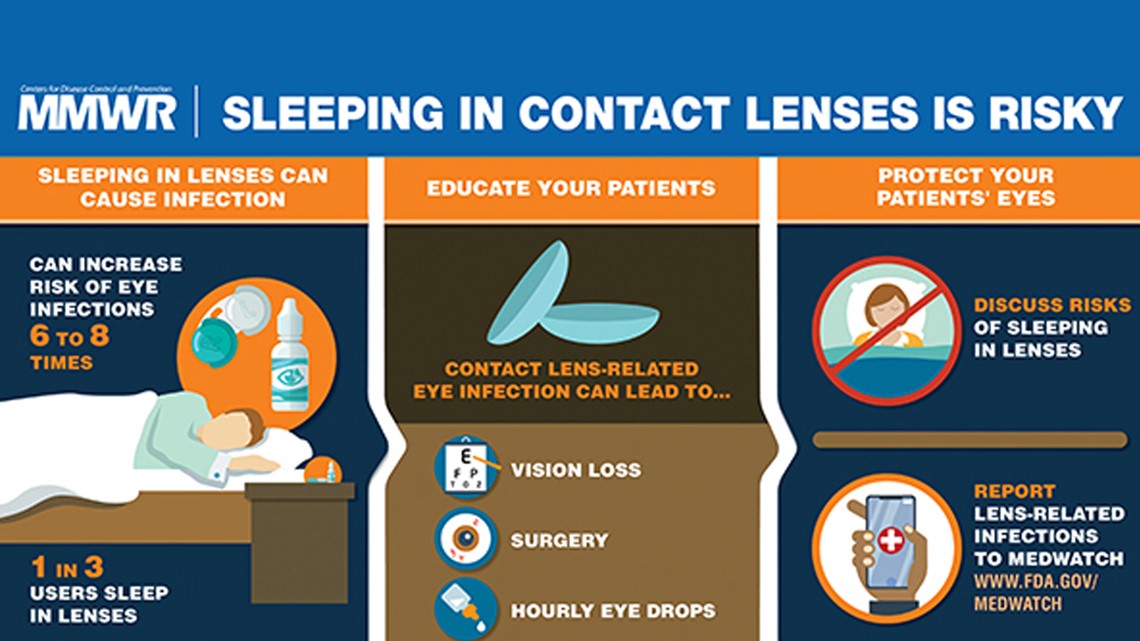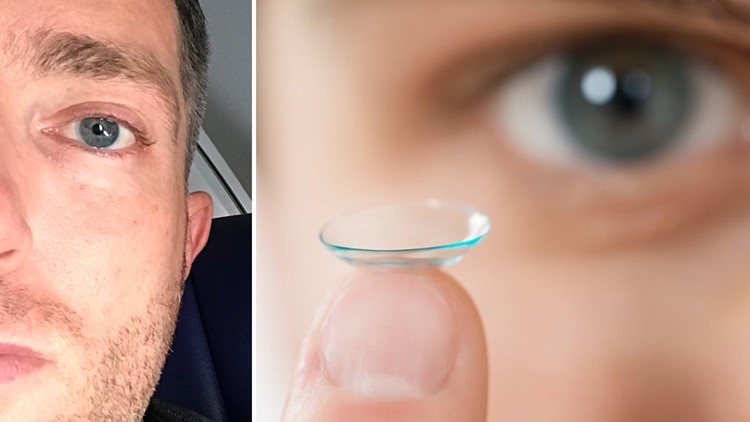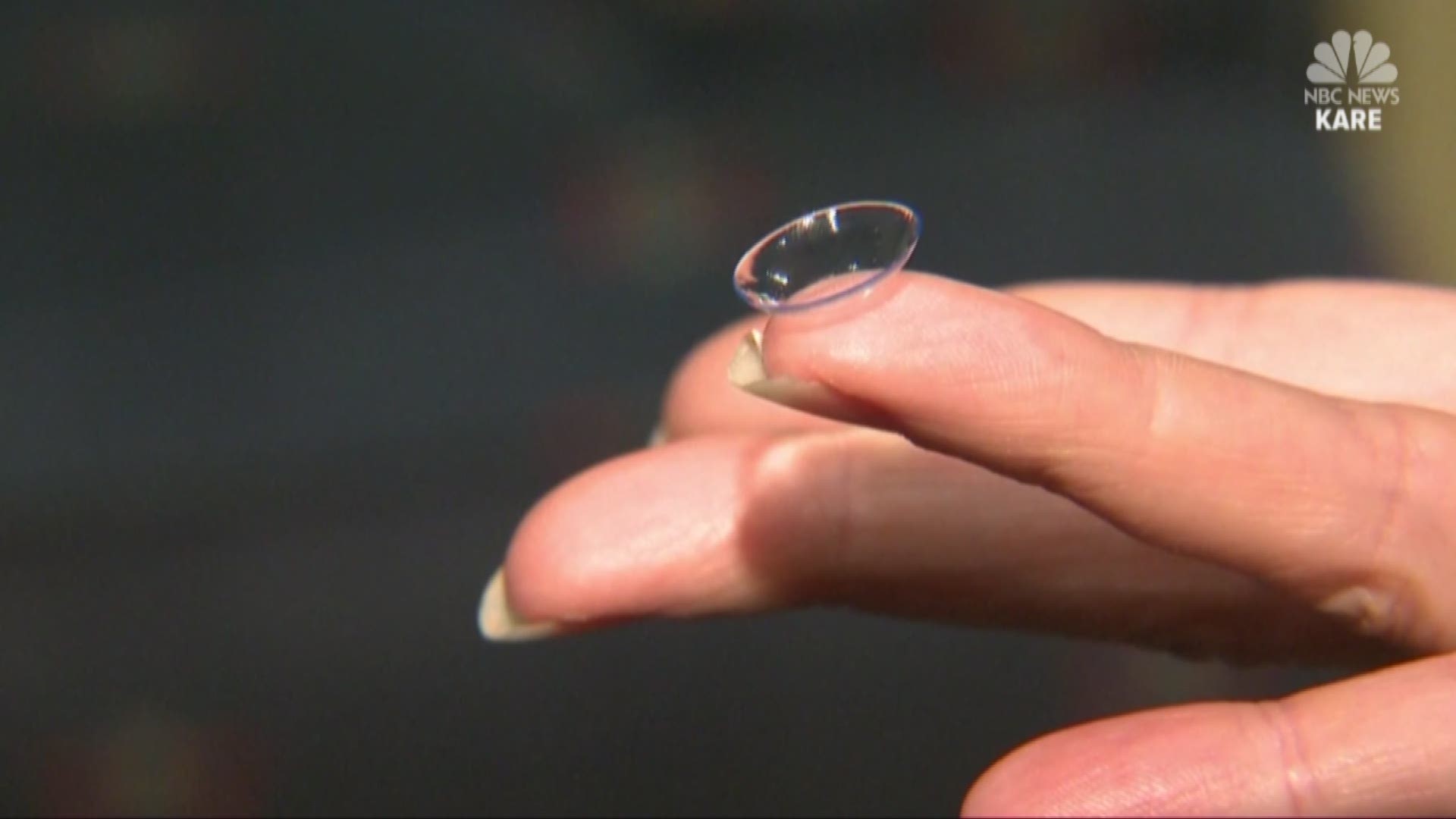Do you sleep in contact lenses? Stop it!
I admit, I rarely take mine out. The thought of fumbling with each lens and adding minutes to my morning routine each day stresses me out.
(If we’re really being honest, I don’t change mine out often enough, either, but enough of the public shaming!)
Am I lazy? Maybe so. I’ve heard conflicting info over the years about whether or not it’s okay to get your ZZZ’s while wearing lenses.
But a discussion in our morning newsroom meeting about a recent Centers for Disease Control study has finally motivated me to change my ways. Maybe it'll help you, too.
Go ahead and beat me up, but I know I'm not alone. 1 in 3 people sleep in their lenses, so says the study. It’s likely you’re one of us!
So, here's why the CDC says sleeping in contact lenses is risky business.
Sleeping in lenses raises your risk of an infection to the cornea, also known as microbial keratitis, by 6 to eight times. So, what’s the big deal about a simple eye infection?


Treatment can have you putting in medicine drops every hour for days, weeks or even months after the infection. As if the hassle were not enough, you could suffer permanent damage to your baby blues.
The study outlined 6 specific cases, including that of a man who never changed or cleaned his lenses. He went to the ER with eye pain and ended up needing a corneal transplant to save his right eye, according to the report.
A second case, who was only 17 years old, constantly slept in her soft contact lenses and eventually developed a right corneal ulcer.
And a third case, an 18-year-old male, went to the ER with pain, light sensitivity and some tearing in one of his eyes.
There is a problem with reporting cases of eye problems due to contact lens wearing. While an estimated 1 million outpatient and ER visits due to keratitis have happened since 2010, it’s unclear how many of those were directly due to wearing contact lenses.
Only 1,075 cases linked to contacts were reported to the FDA’s self-reporting MedWatch database in the past 11 years.
Perhaps, contact lens wearers are embarrassed to admit how we're treating our eyes.
Now to be fair, there are FDA approved lenses for “extended wear” and maybe that’s where some of the confusion comes from.
This is direct text from the FDA website on extended wear lenses:
'Extended wear contact lenses are available for overnight or continuous wear ranging from one to six nights or up to 30 days. Extended wear contact lenses are usually soft contact lenses. They are made of flexible plastics that allow oxygen to pass through to the cornea. There are also a very few rigid gas permeable lenses that are designed and approved for overnight wear. Length of continuous wear depends on lens type and your eye care professional’s evaluation of your tolerance for overnight wear.’
And then there’s this line: 'It’s important for the eyes to have a rest without lenses for at least one night following each scheduled removal.’
FDA says to take them out at least one night while the CDC is clearly urging people to think twice.
I’m not giving out medical advice and it goes without saying you should consult with your eye care professional about the best practice.
But I don’t need to. I’m done wearing my lenses at night. As if the shame and facts were not enough — isn't it strange that while I’m writing this article, my eyes are hurting a little?
I just see it as a sign!




